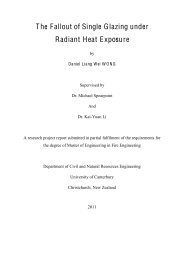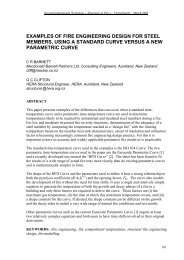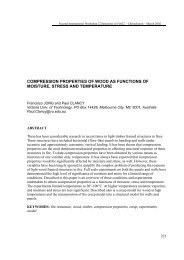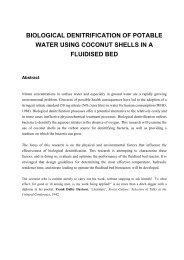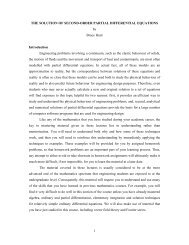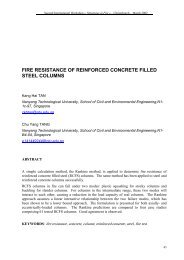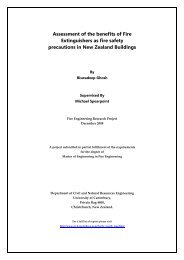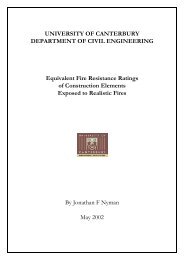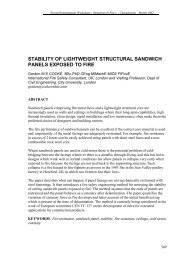University of Canterbury Department of Civil and Natural Resources ...
University of Canterbury Department of Civil and Natural Resources ...
University of Canterbury Department of Civil and Natural Resources ...
You also want an ePaper? Increase the reach of your titles
YUMPU automatically turns print PDFs into web optimized ePapers that Google loves.
• Timetable conflicts invariably occur for students who take courses from two<br />
pr<strong>of</strong>essional years. When this happens, a student must make a choice about<br />
which lectures to attend <strong>and</strong> then obtain class notes from a friend for missed<br />
lectures. Priority should be given to passing the earlier course(s).<br />
• Certain courses cannot be taken until the prerequisites have been passed. This<br />
may require an additional year <strong>of</strong> study.<br />
Students who are required to enrol for failed courses are strongly advised not to<br />
enrol for too many new courses. If one or more courses have been failed, then it is<br />
most likely that graduation will require an extra half or full year. Such students<br />
should enrol only for enough courses to allow classification as full-time students<br />
(course weighting <strong>of</strong> 0.8 EFTS).<br />
4.5.1 Waiving <strong>of</strong> Prerequisites<br />
The waiving <strong>of</strong> a prerequisite for a course can be granted in any <strong>of</strong> the following<br />
three circumstances.<br />
(a) The student has not taken the prerequisite course but can present evidence <strong>of</strong><br />
prior learning that would indicate that they have learnt the key concepts<br />
contained in it. This essentially corresponds to an exemption from the<br />
prerequisite, <strong>and</strong> is normally required for international exchange students<br />
seeking to take a course as a certificate <strong>of</strong> pr<strong>of</strong>iciency.<br />
For local students some additional evidence may be required before the<br />
exemption can be granted. One example <strong>of</strong> this might be an oral examination<br />
given by the academic in charge <strong>of</strong> the course for which the prerequisite is<br />
required. Such an oral examination would be wholly at the discretion <strong>of</strong> the<br />
academic. Alternatively, the Director <strong>of</strong> Undergraduate Studies may require<br />
the student to undertake at least one semester <strong>of</strong> study at the <strong>University</strong> <strong>of</strong><br />
<strong>Canterbury</strong>. In this way the academic performance <strong>of</strong> the student, who may<br />
have come from a different tertiary environment, can be evaluated before an<br />
exemption is given.<br />
In all cases, the decision will be made by the Head <strong>of</strong> <strong>Department</strong> (actually the<br />
Director <strong>of</strong> Undergraduate Studies through delegation) in consultation with the<br />
academic staff member who is responsible for the course for which the<br />
prerequisite is required.<br />
(b) The student has failed the prerequisite course. In this case a waiver will be<br />
granted when<br />
• the student received a D grade in the prerequisite course,<br />
• the student’s overall GPA in the previous year <strong>of</strong> study exceeded 5, <strong>and</strong><br />
38<br />
`



